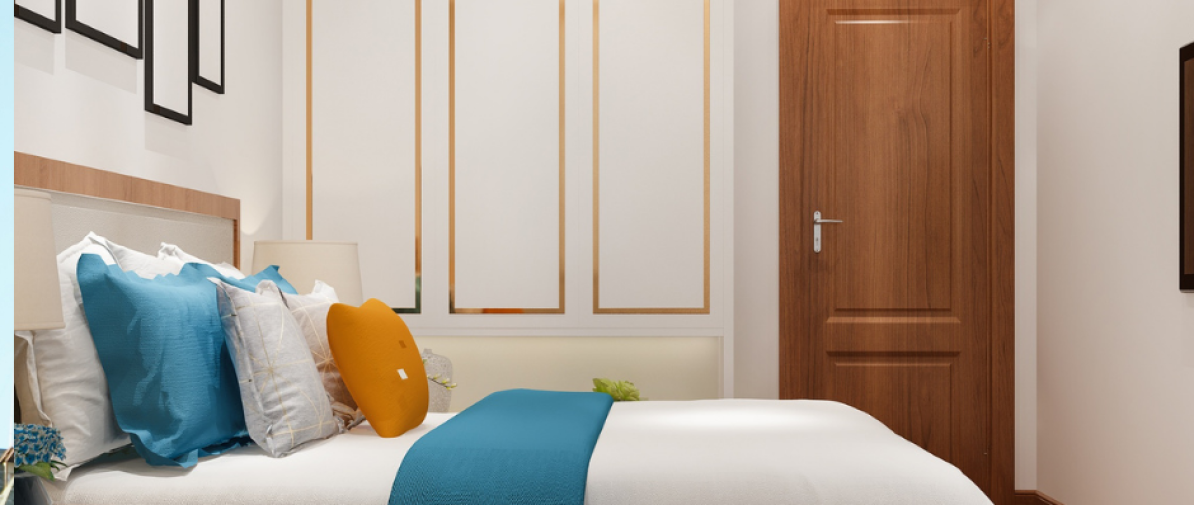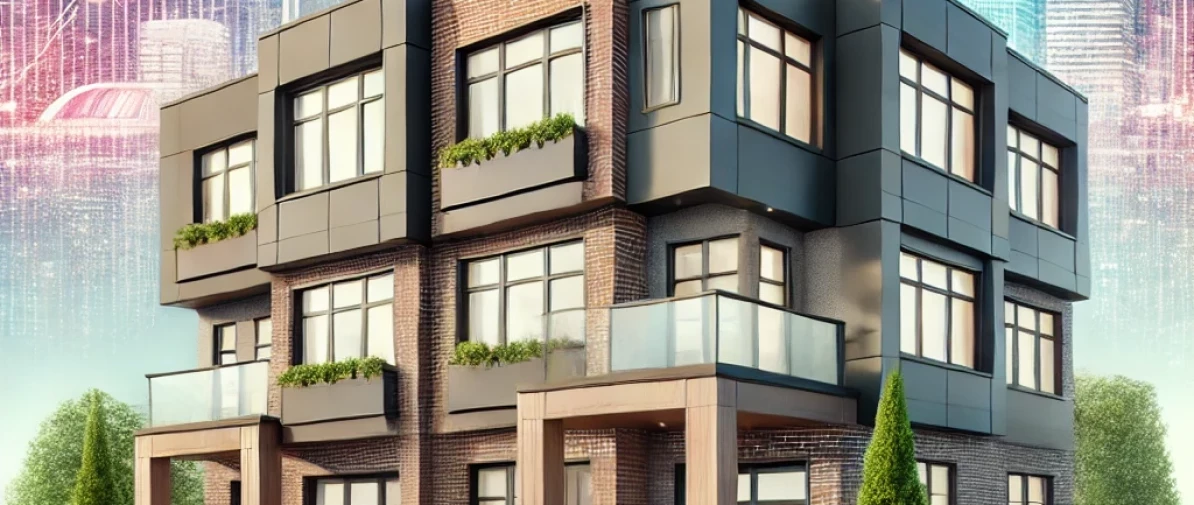Building vs. Buying a Home

Explore Homes By Neeta Listings
Homes By Neeta is a leading real estate
agency in Canada, helping buyers and investors navigate residential, condo, and
commercial markets. With years of experience and a strong track record of
successful transactions, Homes By Neeta provides expert guidance, personalized
service, and access to exclusive listings. Whether you are looking for a
move-in-ready home, pre-construction opportunities, or commercial properties,
their team ensures you find the right property while maximizing your
investment.
Explore Homes By Neeta listings to start your home search:
Table of Contents
- Explore Homes By Neeta Listings
- Benefits of Building a Home
- Challenges of Building a Home
- Advantages
of Buying a Home
- Disadvantages
of Buying a Home
- FAQs: Building vs Buying a Home
Benefits of Building a Home
Full Customization
Building a home allows complete control
over design, layout, and finishes. You can select floor plans, materials,
cabinetry, flooring, lighting, and appliances, creating a space tailored to
your lifestyle. This eliminates the need for major renovations in the future,
as your home is designed to meet your exact preferences from day one.
Financial Control and
Flexibility
Constructing a home gives you flexibility
over budget allocation. You can prioritize spending on high-impact areas, such
as a chef’s kitchen or energy-efficient systems, while delaying or scaling back
on non-essential features. This financial control can help prevent overspending
and ensures you are investing in the features that matter most to you.
Energy Efficiency and
Modern Technology
Newly built homes incorporate the latest
energy-efficient materials and systems. Features such as high-efficiency HVAC
units, advanced insulation, energy-efficient windows, and smart home technology
lower long-term utility bills and reduce environmental impact. Many
jurisdictions also offer rebates or tax incentives for energy-efficient
building materials.
Healthier and Sustainable
Living
When building a home, you can choose
non-toxic, sustainable materials that create a healthier indoor environment.
Additionally, installing solar panels, tankless water heaters, and greywater
recycling systems is easier in a new build than in an older property. This
approach reduces your ecological footprint and enhances long-term comfort.
Lower Maintenance and
Repairs
Brand-new homes have new plumbing,
electrical systems, and appliances, which reduces maintenance costs. Fewer
repairs mean homeowners can allocate funds to mortgage payments, home
improvements, or lifestyle expenses like travel and hobbies.
Avoiding Market
Competition
Building a home avoids bidding wars
common in low-inventory markets. You don’t compete with multiple buyers, and
you can secure your ideal home without paying inflated prices due to market
competition.
Challenges of Building a Home
Extended Construction
Timeline
Building a home takes several months on
average, often ranging from seven months to over a year. During this time,
homeowners must manage planning, attend site inspections, and possibly arrange
temporary housing, which can be inconvenient.
Unforeseen Costs and
Budget Overruns
Even with detailed estimates from
contractors, construction projects often encounter unexpected expenses.
Material costs can fluctuate, or additional structural changes may be required,
which can increase the overall cost of the project.
Time-Intensive Process
Managing a construction project requires
frequent decision-making and constant communication with contractors,
architects, and suppliers. Selecting finishes, reviewing progress, and
troubleshooting issues can be time-consuming and demanding.
Limited Negotiating
Options
While homeowners can control materials
and design choices, the overall construction cost is often fixed by contracts
with contractors. Unlike buying an existing home, where price negotiation is
possible, building costs offer limited flexibility for reducing expenses.
Advantages of Buying a Home
Predictable Costs and
Immediate Move-In
Purchasing an existing home provides
clarity on the total cost upfront. Buyers know the price, property taxes, and
closing costs, reducing the likelihood of unexpected expenses. Additionally,
move-in timelines are much shorter, often within 30-60 days, compared to months
for a new build.
Established Neighborhoods
and Amenities
Buying a home allows access to mature
neighborhoods with developed infrastructure, parks, schools, shopping, and
community amenities. This ensures convenience, security, and community
engagement without waiting for new developments to mature.
Convenience and Reduced
Decision-Making
Buying a home requires fewer decisions
than building. You choose a property and move in, rather than managing
construction timelines, material selections, and contractor coordination.
Negotiation Opportunities
Existing homes provide room for
negotiation on price, closing costs, or necessary repairs. Buyers may also
negotiate move-in dates or inclusions such as appliances or furniture, which is
less feasible in a new build.
Disadvantages of Buying a
Home
Limited Customization
An existing home offers limited
flexibility. While cosmetic updates like painting or fixtures are possible,
structural changes such as modifying floor plans, expanding rooms, or
reconfiguring layouts are costly and time-consuming.
Competition and Market
Stress
In low-inventory markets, finding the
right home may involve multiple offers, bidding wars, and rejected proposals.
This can be stressful and may require buyers to adjust budgets to compete
successfully.
Potential Maintenance
Issues
Older homes often require more maintenance and repairs. Systems such as plumbing, electrical, and HVAC may be aging, and pre-1970 homes may contain hazardous materials like asbestos or lead paint, necessitating immediate attention and cost.
Related Blogs
o Pre-Construction Homes in Ottawa – 2025 Guide
o Pre-Construction Homes in Ottawa – Find Your Future Home
o Condos for Sale in Burlington, Ontario
o Condos for Rent in Burlington
o First-Time Home Buyer in Ontario GTA 2025
o Best Real Estate Agents in Toronto
FAQs: Building vs Buying a
Home
Q1:
Which is cheaper, building or buying a home?
A1: It depends
on location, materials, and labor costs. Buying an existing home is generally
faster and can be less expensive upfront, while building allows customization
but may incur higher costs due to construction and unexpected expenses.
Q2:
How long does it take to build a home in Canada?
A2: On average,
building a new home takes 7-12 months, but complex custom builds or delays can
extend this timeline.
Q3:
Can I negotiate costs when building a home?
A3: Limited
negotiation is possible, mainly in material selection or choosing optional
upgrades. Construction contracts typically fix labor and core costs.
Q4:
Are new homes more energy-efficient than existing homes?
A4: Yes, new
builds use advanced insulation, efficient windows, modern HVAC systems, and can
include renewable energy options, reducing utility costs and environmental
impact.
Q5:
Is it better to build or buy in a low-inventory market?
A5: Building a
home avoids competition, but the process takes longer. Buying provides
immediate occupancy but may involve bidding wars and higher costs.
Contact me
Recent Posts
Resorts for sale in Ontario
How to Sell Commercial Property in Ontario
COMMERCIAL DEALS IN ONTARIO
Investing in Precon Toronto Condos
Multiplex Home
Building vs. Buying a Home









